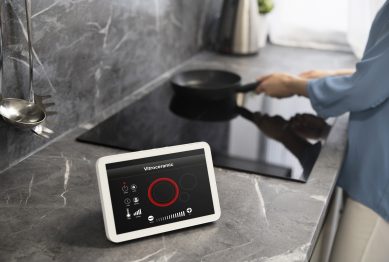In an age dominated by constant connectivity, social media has become an indispensable part of daily life for both personal and professional reasons. From networking to marketing, businesses rely heavily on these platforms for engagement and outreach. However, there’s an emerging conversation in the business and technology sectors about the benefits of disconnecting from social media to boost creativity. As professionals juggle between managing their online presence and maintaining high levels of productivity, many are starting to question whether their online habits might be limiting their creative potential.
The impact of social media on creativity is a hot topic in the world of business and strategy, particularly for those in highly creative fields like marketing, product development, and entrepreneurship. This article explores how disconnecting from social media can help enhance creativity and improve overall business performance.

The Social Media Paradox: Connectivity vs. Creativity
On the surface, social media platforms seem like an ideal space for inspiration. Instagram, Twitter, Pinterest, and LinkedIn are teeming with new ideas, trends, and resources. They allow individuals to keep up with industry news, interact with thought leaders, and even find new ways to innovate in their work. But, what happens when this constant stream of information hinders, rather than fuels, our creative process?
The social media paradox lies in the fact that while social media connects us to others and provides immediate access to vast amounts of information, it can also overwhelm the mind, hinder deep thinking, and ultimately stunt creativity. A study published by Psychology Today highlights how social media use can contribute to cognitive overload, which reduces the brain’s ability to focus on complex or creative tasks.
Creativity requires mental space—room to think, reflect, and imagine new possibilities. Yet, the constant pinging of notifications and scrolling through endless feeds limits that space. As a result, professionals find it increasingly difficult to concentrate, brainstorm, or engage in deeper forms of creativity. The very tools designed to inspire and connect can often lead to distractions and diminished cognitive function.
The Cognitive Cost of Social Media: Why Disconnecting Helps
When you’re constantly bombarded by notifications, news, and posts, it becomes harder to direct your attention toward important tasks. According to a study published by the Journal of Business Research, heavy social media usage is linked to lower levels of focus and cognitive performance. This is particularly detrimental to fields requiring high levels of problem-solving, innovation, and strategy—such as in business and finance.
Here’s a breakdown of how disconnecting from social media can benefit your creative process:
1. Improved Focus and Mental Clarity
The average person checks their phone 96 times per day, according to a study by Dscout. Constantly shifting attention from task to task not only wastes time but also drains mental energy, leaving little room for deep thinking or creative problem-solving. The process of switching between social media apps and work tasks leads to “attention residue,” a cognitive phenomenon that impairs focus and makes it harder to concentrate on more important tasks.
When you disconnect from social media, your brain can focus on one thing at a time. This uninterrupted attention is essential for creative thinking, whether you’re developing new business strategies, writing a report, or brainstorming innovative product ideas.
2. Reduced Anxiety and Pressure to Conform
Social media, particularly platforms like Instagram and Twitter, often create a “fear of missing out” (FOMO) effect. The pressure to stay updated with trends, follow influencers, and keep up with the competition can be overwhelming. In creative fields, this can lead to “comparison anxiety,” where you’re constantly measuring your progress against others’ highlights, rather than focusing on your own creative process.
By disconnecting from social media, you free yourself from the pressure to compare and begin focusing on your own work, unhindered by the noise of others. This space allows you to think outside the box, explore unconventional ideas, and embrace unique solutions without worrying about others’ approval or success.
3. Enhanced Deep Thinking and Problem Solving
The ability to think deeply is a cornerstone of creativity. In business and strategy, this means taking the time to analyze, reflect, and innovate. However, frequent social media use divides your attention and prevents you from engaging in deep, uninterrupted thinking. A study by The Journal of Applied Psychology found that employees who limit distractions perform better in creative problem-solving tasks.
Taking time away from social media gives your brain a chance to process information, reflect on ideas, and come up with original solutions. Without the constant interruptions, you can fully immerse yourself in your work, leading to better ideas and more effective strategies.
The Benefits of Disconnecting: Real-World Examples
The idea that disconnecting from social media can boost creativity isn’t just theoretical. Many successful entrepreneurs and business leaders swear by the practice. Here are a few real-world examples:
1. Steve Jobs and His Minimalist Approach
Steve Jobs, the co-founder of Apple, was known for his minimalist approach to both design and life. Jobs famously limited his exposure to the distractions of modern technology, preferring deep thought and reflection. He was known to take long walks, away from digital distractions, to work through complex problems. This time away from technology allowed him to conceptualize groundbreaking ideas for Apple’s products, such as the iPhone and iPad, that changed the technology industry forever.
2. Tim Ferriss and the Power of Social Media Detox
Tim Ferriss, author of The 4-Hour Workweek, advocates for intentional social media breaks to maintain productivity and foster creativity. Ferriss practices a “social media detox” by checking social platforms only once a day and using the time he would spend on social media for focused, creative work. He emphasizes how disconnecting helps him maintain clarity and focus on more important tasks, leading to higher levels of creative output.
How to Disconnect from Social Media for Creative Boosts
While the idea of disconnecting from social media might seem daunting, there are simple ways to integrate it into your daily routine to reap the benefits. Here are some practical steps to take:
1. Schedule Social Media Breaks
Instead of quitting social media entirely, set specific times each day to check your notifications. Limit your time to 10-15 minutes per session and avoid looking at your phone first thing in the morning or right before bed. By scheduling your social media use, you allow yourself to remain connected without sacrificing mental clarity.
2. Use Technology to Limit Social Media Access
Use apps like Freedom, StayFocusd, or Forest to block access to social media sites during work hours. These tools help you stay focused on your work, reducing the temptation to check social media every few minutes.
3. Practice Digital Detox Weekends
Take a break from all social media platforms for an entire weekend. Use this time to reconnect with nature, engage in hobbies, or simply relax and clear your mind. This detox period can help reset your mental state, improving focus and creativity when you return to work.
4. Create a Social Media-Free Workspace
Designate a physical space where you work that is free from social media distractions. Keep your phone out of arm’s reach, or use a “do not disturb” mode on your device. This allows you to concentrate on your creative tasks without the temptation to check notifications.
Conclusion
While social media is an essential tool for communication and business in the modern world, the constant stream of information it provides can hinder creativity and productivity. Disconnecting from social media—whether it’s for a few minutes each day or an entire weekend—can help reduce distractions, improve focus, and promote deeper thinking. By taking time to disconnect, you give your brain the space it needs to come up with innovative ideas, solve complex problems, and build better business strategies.
As the evidence increasingly points to the positive effects of limiting social media usage, professionals in business, strategy, and technology should consider this practice to maximize their creative potential. Disconnecting from the noise is not only good for your mental health but also critical for your success in today’s hyper-connected world.
Reference
- Journal of Business Research Study on Social Media Usage- https://www.journalofbusinessresearch.com
- Steve Jobs and His Minimalist Approach- https://www.simonandschuster.com
- Wiley Online Library Study on Social Media Use and Creativity- https://onlinelibrary.wiley.com









